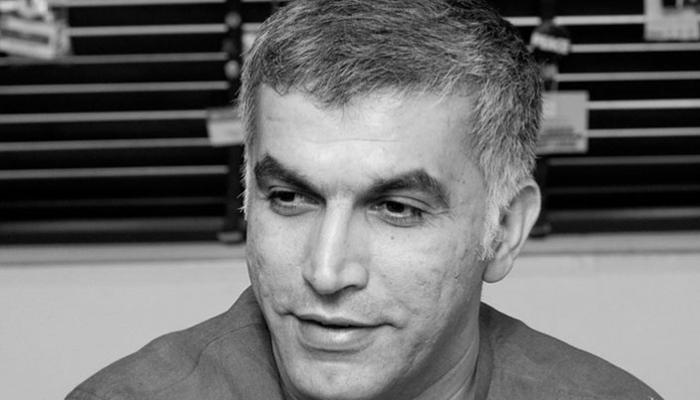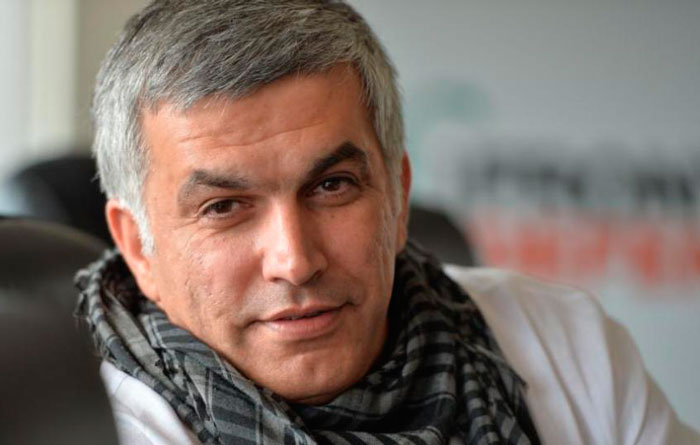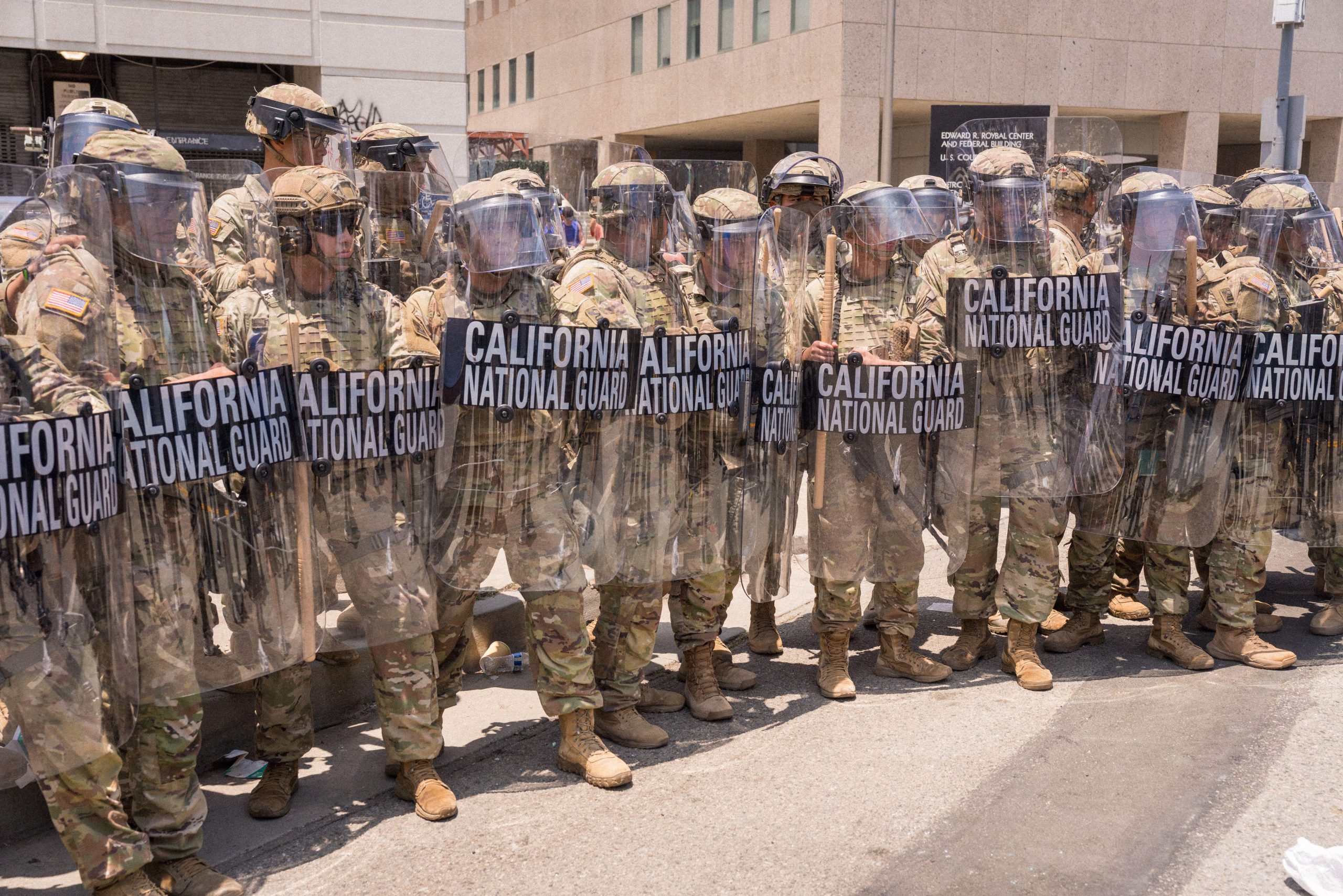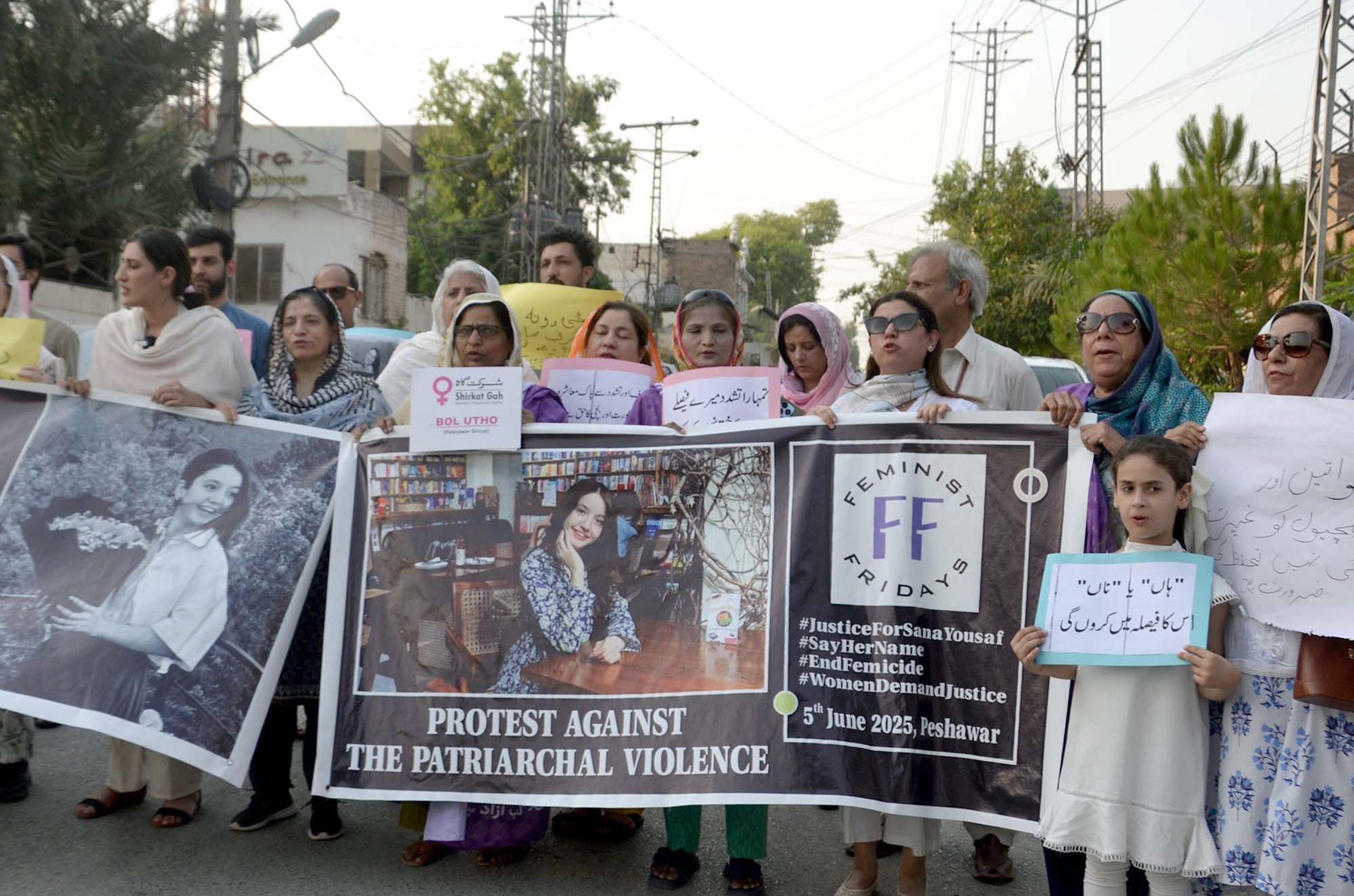[vc_row][vc_column][vc_column_text]Index on Censorship joins with a coalition of organisations to write to governments about the ongoing judicial harassment of 2012 Freedom of Expression Award-winner Nabeel Rajab.

Bahraini activist Nabeel Rajab
We write to ask you to urgently raise, both publicly and privately, the case of Nabeel Rajab, one of the Gulf’s most prominent human rights defenders, who on 22 November 2017 is expecting the conclusion of his appeal against a two-year prison sentence for stating that Bahrain bars reporters and human rights workers from entry into the country. We urge your government to support Mr Rajab by condemning his sentencing and calling for his immediate and unconditional release, and for all outstanding charges against him to be dropped.
The Bahraini government is clearly setting out to prosecute and punish Mr Rajab for his human rights work, doing so in violation of both the principles of a fair trial and the right to freedom of expression. The targeting of Mr Rajab for his work and comments reflects the dangerous situation for human rights defenders in Bahrain. Silence over reprisals against individuals exercising their right to free expression emboldens the Government of Bahrain to pursue further reprisals. Mr Rajab is one of many Bahraini human rights defenders who have suffered reprisals in 2017. Human rights defender Ebtisam al-Sayegh was tortured and sexually assaulted by the National Security Agency in May and arrested for her work in July; since released from jail, she faces anti-terrorism charges. Three family members of UK-based campaigner Sayed Ahmed Alwadaei were arrested, tortured and sentenced to three years in prison in October.
Mr Rajab, who is President of the Bahrain Center for Human Rights (BCHR), Founding Director of the Gulf Centre for Human Rights (GCHR) and Deputy Secretary General of FIDH, has been detained since his arrest on 13 June 2016. He was held largely in solitary confinement in the first nine months of his detention, violating the UN Standard Minimum Rules for Non-Custodial Measures (Tokyo Rules) which state: “pre-trial detention shall be used as a means of last resort in criminal proceedings, with due regard for the investigation of the alleged offence and for the protection of society and the victim.” The human rights defender was transferred to Jau Prison on 25 October 2017, having been hospitalised since April after a serious deterioration of his health resulting from the authorities’ denial of adequate medical care and unhygienic conditions of detention.
Mr Rajab was subjected to humiliating treatment on arrival at Jau Prison, when guards immediately searched him in a degrading manner and shaved his hair by force. Prison authorities have singled him out by confiscating his books, toiletries and clothes, and raiding his cell at night. Mr Rajab is isolated from other prisoners convicted for speech-related crimes and is instead detained in a three-by-three meter cell with five inmates, among them convicted Daesh affiliates. Prison officers have threatened him with punishment if he speaks with other inmates, and he is not allowed out of his cell for more than one hour a day. One of Mr Rajab’s outstanding charges is that he spoke out about the degrading treatment in Jau Prison. The evidence he and BCHR gathered proving torture in the prison was exposed in a joint-NGO report, Inside Jau, in 2015. Human Rights Watch also reported on the same incidents of torture.
Mr Rajab’s two-year sentencing on 10 July 2017 was on charges of “publishing and broadcasting false news that undermines the prestige of the state” under article 134 of Bahrain’s Penal Code, in relation to his statement to journalists that the Bahraini government bars reporters and human rights workers from entering the country. The Lower Criminal Court held nine hearings during Mr Rajab’s hospitalisation which he was unable to attend. His appeal began in September; on 8 November, Mr Rajab’s lawyers disputed the charge by submitting video evidence of journalists and researchers being denied entry into Bahrain, however the court, led by Judge Bader al-Abdulla, refused to allow the evidence in court.
Mr Rajab had a separate hearing on 19 November 2017 in a concurrent case relating to his tweets about torture in Bahrain’s notorious Jau Prison and the Saudi-led coalition’s war in Yemen, for which he faces up to 15 additional years in prison. The court heard a prosecution witness, who had already appeared in a previous hearing last year, and who was not able to provide any evidence against Mr Rajab. The trial was adjourned to 31 December 2017, when the security officer who confiscated Mr Rajab’s electronic devices for another case will be brought as a prosecution witness. We, the undersigned organisations, consider that the long-running trial – the next court hearing will be the eighteenth since the trial began – is a reprisal against Mr Rajab’s expression. Mr Rajab also has been charged with “spreading false news” in relation to a letter he wrote to the New York Times in September 2016. A new set of charges were brought against Mr Rajab in September 2017 in relation to social media posts made in January 2017, when he was already in detention and without internet access.
In June 2017, United Nations human rights experts condemned the “sharp deterioration of the human rights situation” in Bahrain. This deterioration has included executions, unlawful killing of protesters and new reprisals against human rights defenders. In September 2017, the UN condemned the increasing number of Bahraini human rights defenders facing reprisals, naming nine affected individuals, Mr Rajab among them. The UN Committee Against Torture has called for Mr Rajab’s release.
We therefore urge your government to call on Bahrain to: immediately release Mr Rajab ahead of the final verdict on 22 November 2017 regarding his appeal against a two-year prison sentence; drop all charges against him; and undertake prompt, impartial, independent and effective investigations into the allegations of ill-treatment. The findings of the investigation must be made public and anyone suspected of criminal responsibility must be brought to justice in fair proceedings. As this case is a part of a pattern of abuse and harassment against human rights defenders in Bahrain, we urge you to call on Bahrain to cease all harassment of human rights defenders and to ensure the full respect of the right to freedom of expression.
Yours sincerely,
Americans for Democracy & Human Rights in Bahrain
Bahrain Center for Human Rights
Bahrain Institute for Rights and Democracy
English PEN
European Centre for Democracy and Human Rights
FIDH within the framework of the Observatory for the Protection of Human Rights Defenders
Front Line Defenders
Global Legal Action Network
Gulf Centre for Human Rights
IFEX
Index on Censorship
International Service for Human Rights
PEN International
Reporters Without Borders
World Organisation Against Torture within the framework of the Observatory for the Protection of Human Rights Defenders
[/vc_column_text][/vc_column][/vc_row]






